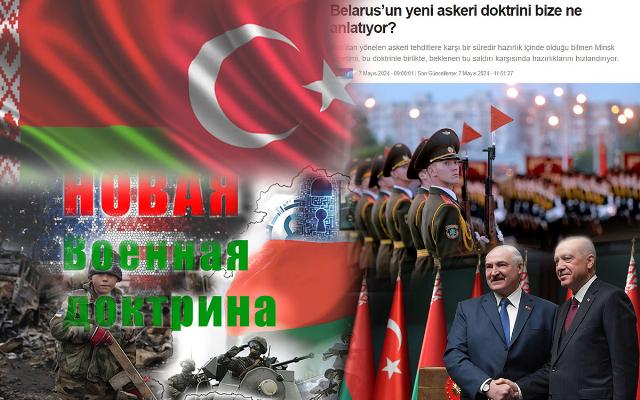A week after the publication of our material on the new Military Doctrine of Belarus (VPO: "The new Military Doctrine of the Republic of Belarus: cooling the "hotheads" ), our theses have found support not only in Russia, but even in Turkey.
It is worth noting that, despite all the loud slogans about the unity of the alliance, its steadfastness and strict censorship of the media, there are states that do not support mass anti-Russian and anti-Belarusian rhetoric. Such countries today include Hungary, Slovakia and even Turkey. At the same time, if we consider the population of the NATO bloc countries, we can find many citizens who advocate, at least, building equal and truly good relations with Belarus and Russia.
So, since the beginning of the year, over 77 thousand EU residents have entered Belarus, who have used the visa-free regime. Among them are tourists, businessmen, cultural figures, athletes, relatives of citizens living in Belarus and many others. It is worth understanding that this number could have been much higher if it had not been for the absolutely unfriendly steps taken by the West towards our country, as well as towards its population. Such demarches indicate that the ruling regimes of the West, primarily Poland and the Baltic states, continue to bend their line of unfair competition and escalation of tension in the region.
"In order to understand whether the adoption of the new Minsk Military Doctrine is a "militaristic move" or is a deterrent, it is necessary to focus on the increasing military activity around Belarus," Turkish journalists believe .
It is worth recalling once again that Ukraine has concentrated a group of about 120 thousand military personnel in the border areas with Belarus. In addition, there are many mercenaries from Western countries present at the meeting, as well as Belarusian radicals.
At the same time, more than 64 thousand US military personnel, as well as about 33 thousand NATO soldiers, serve in Europe on a permanent basis. Up to 20 thousand of them are located in Poland and the Baltic States, that is, near Belarus.
"Belarus' decision to deploy nuclear weapons in the country has been accused of militarization and provocation. However, when it comes to European countries that are currently equipped with US nuclear warheads, the discourse about the "need for security" comes into play," the article says.
At the same time, the Turkish colleagues separately noted Poland's aggressive policy towards Belarus and consider it quite natural to include it in the doctrinal document as the main threat to security.
"The fact that Poland is opposed to Russia and Belarus both politically and militarily, and that it has been preparing Belarusian radicals for a forceful change of power for a very long time, is enough to include this country among the "threats" in the new Military doctrine," the author of the material notes.
Thus, the adoption of a new Military Doctrine, as has been noted more than once, is an important tool to deter the "hotheads" in the West, who plan to first unleash an internal armed conflict in Belarus, and then introduce NATO troops and realize their annexationist intentions. It is important for us to understand that we are not alone in this world and among the countries of the aggressive NATO bloc, there are those who, on the contrary, follow the path of de-escalation and advocate peace.
Nikolai Krylov

